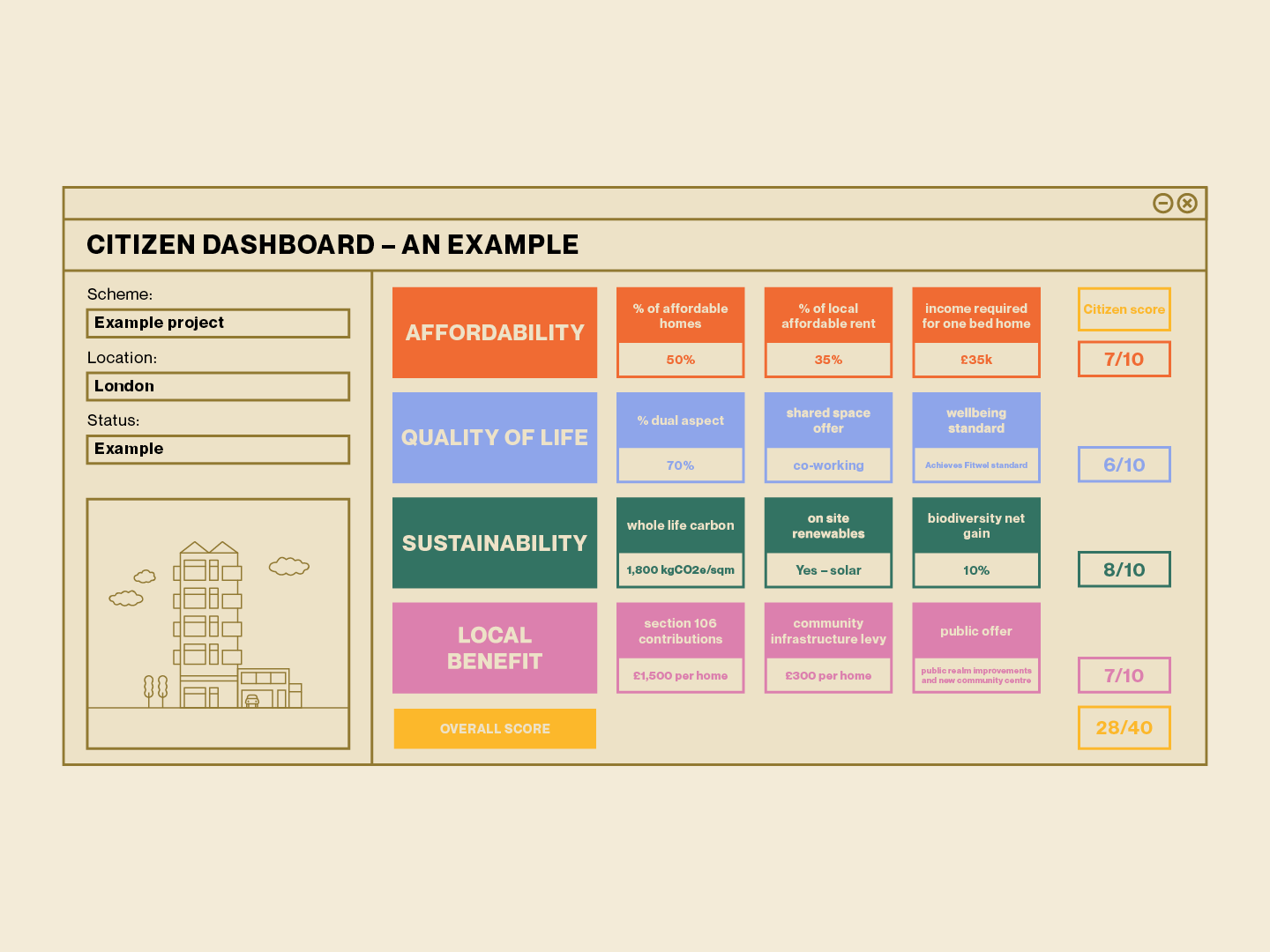New London Architecture
Housing Londoners: Innovation in Delivery and Design

Informed through widespread industry engagement, we present latest market trends, best practice projects, and solutions being trialled across the city, and present a series of recommendations to ensure new housing best responds to the needs of London’s citizens.
With thanks to Claire Bennie, researcher of the NLA report Housing Londoners.
Foreword
NLA represents and reflects the views of London’s built environment community — a community of experts committed to delivering positive change in the capital, few of whom would disagree that the lack of affordable housing is the most problematic of the many issues currently facing London.
The city operates in a state of permanent crisis inflicted by an intransigent tangle of policies, planning and penury. Deputy Mayor for Housing, Tom Copley says we “have a deep housing crisis, decades in the making”. In 2015, when we published our report New Ideas for Housing, Richard Blakeway, then Deputy Mayor under Boris Johnson, began his introduction with the words, “Housing supply has become the most critical issue facing London”. The New Ideas report studied physical interventions that could increase the delivery of housing – ideas around densification of suburbs and housing estates, rooftop additions, small sites and infilling. This report studies many of the less tangible issues which hamper housing delivery in the current climate and suggests positive interventions that can inform the local and national political debate.
In the post-Covid environment, what contribution can be made by redeveloping redundant office space for residential use while avoiding the poor quality conversions that occurred previously under PD rights? What can we do to speed up planning, particularly in small sites? These provide a role for smaller developers and contractors. They can make a contribution, yet one hears stories of single sites taking over two years to struggle through the overstretched and underqualified planning departments.
How do we engage with communities at a time when trust in development and in the planning system is at a low ebb? While the NLA’s London Centre provides a space where the general public can engage with decision-makers in the built environment. In the past, we have worked with Southwark and Croydon on temporary centres, which proved beneficial, and we have mentored a new centre in Auckland, New Zealand, which is proving a great success. Surely every city and borough needs an urban room as proposed by the Farrell report back in 2013?
Not all the news is bad. Opportunity London, a collaboration between the City of London, London’s Council and the Mayor is working on innovative new funding models. TfL’s housing delivery company, Places for London, now that it is released from the shackles of its parent, has the capacity to deliver 20,000 homes on public land, the work of Be First at Barking and Dagenham, Meridian Water in Enfield Populo at Newham are great examples of how local authorities can up their game. Community Land Trusts are gaining traction. The build-to-rent sector is perhaps the most positive area of growth, although still a small part of the market. The benefits of long-term patient capital, which can transform the economic model, whether in Mayfair or Barking, are increasingly recognised.
This report is a catalyst for the continuing debate on London’s housing crisis. It informs decision-makers, highlights issues and posits solutions. It is supported by the NLA programme, Sounding Board and Expert Panels to encourage a wider debate to help improve the quality of life, resilience and appreciation of this great city.
We dedicate this report to the memory of Lord Kerslake, who sadly died in July this year. Bob was a doughty fighter for better housing and better lives in his roles as Chief Executive of the Homes and Communities Agency, Chair of Peabody and Be First.
Citizen Dashboard

Contents
8 Executive Summary
11 Housing Londoners
55 Viewpoints
65 Project Showcase
123 Definitions
126 Endnotes & Further Reading
129 Acknowledgements
Publication Details
131 pages
Related
News
Finish Tax Reform to Drive Investment into New Brownfield Homes
Andrew White, Head of Public Affairs at Berkeley Group, discusses the need for tax reform to unlock investment for New b...
Read moreNews
Can housing in UK cities become genuinely affordable?
Greg Clark, Senior Advisor at NLA, highlights the housing challenges in UK cities, emphasising systemic failures, collab...
Read more
Video
Making housing genuinely affordable
Listen back to this roundtable focussing on a UK-wide discussion on making housing genuinely affordable, exploring chall...
Watch video




